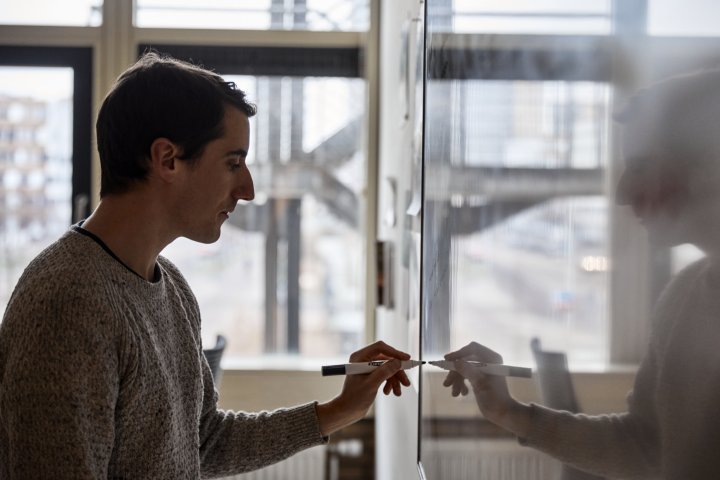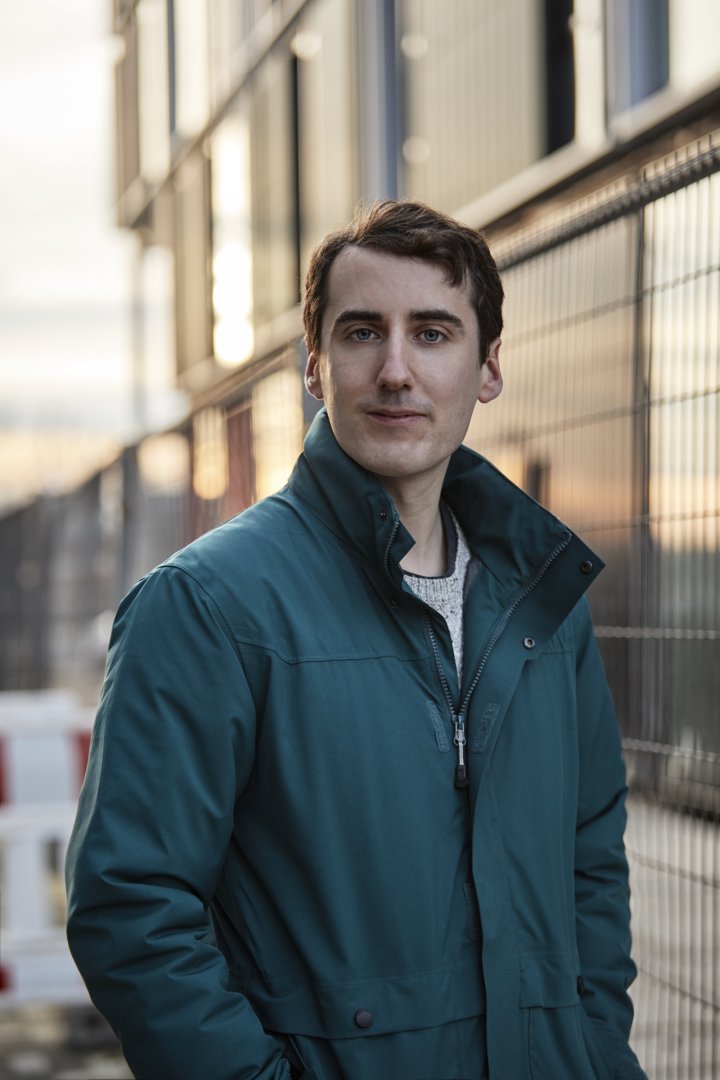
Dean McHugh: computer models that ensure justice prevails
PhD candidate causal relations Dean McHugh is trying to find a model for causality. Where others might say ‘it's just a matter of how you define it’ to minimise the relevance of a given discussion, this statement actually sums up Dean's work rather nicely. To give a concrete example, his models might someday be a vital part of the justice system.
Making computer models that ensure justice prevails
‘I often jokingly say that I'm trying to do the same thing kids do. As early as two or three years of age, children start picking up the rules of causal relationships by listening to adults. A child might say to another child, “I want to play with you because you're my friend.” But how exactly did they learn this, as a child? I study people's perceptions of causal relationships, with the goal of creating a logical framework for them.’

So where does Dean get his data, by eavesdropping in schoolyards? ‘I do know of colleagues whose research deals with children, and they’re finding some really interesting examples. But I'm no childhood language expert – give me a legal document any day.’
Dean relies heavily on court cases for his research and models. ‘These are a conventional source of very precise information that can be easily accessed: did the patient die as a result of negligence on the doctor's part, or because of their own poor diet? When the trans woman was fired from her job, was there discrimination at play? Every aspect has been recorded and includes clear supporting arguments.’
People will sometimes say, “It's just semantics”, by which they are implying that something is meaningless. But I've dedicated my whole life to it.
Life’s work
Semantics are extremely important in court cases. A small word like ‘because’ can have drastic implications. ‘In a discussion, people will sometimes say, “It's just semantics”, by which they are implying that something is meaningless. But I've dedicated my whole life to it.’
‘Courtroom trials often deal with cause and effect: If the cause had not been present, the subsequent effect would not have taken place either. This philosophy can be traced back to David Hume. Yet something about this isn't right. I can say, “I have an Irish passport because I was born in Dublin.” But even if I hadn't been born in Dublin, there are still other places in Ireland that would make me eligible for an Irish passport. Different cause, same effect.’
Replacing judges
While a concrete application of Dean's models could help judges render their decisions, that is not his primary goal – he is first and foremost a scientist. ‘I love looking at court cases, but in the end, I think that there's a stable concept to be found for both inside and outside the courtroom. I'm looking for that overarching concept.’
So is he secretly on a mission to replace judges with computers? He laughs and says, ‘No, we need judges to work out the implications of the rules. But I hope to be able to make recommendations.’ At the moment, Dean's models are not yet being used in court. ‘First, I need to make sure I get it all properly set out for my dissertation. But yes, the plan is to make judges aware of my work.’

New insights
Where does the researcher find inspiration? ‘A good researcher is a happy researcher – that's what I tell myself as an excuse to go to fantastic concerts in the Concertgebouw. Ballet and opera in the ‘Stopera’ building; when you're a student, you get a big discount on tickets. And the great thing is that new insights pop into my head while I'm there.’
"In LAB42, there will be even more whiteboards and places to meet with one another."
Working in LAB42
‘The best way to work out a line of thought is to discuss it with friends and colleagues. That's what's great about the Institute for Logic, Language and Computation. Before the COVID-19 pandemic, we got together often. It's a pleasant community with a great atmosphere in which people will gather around one of the many whiteboards and engage in passionate discussions. The idea is that, in LAB42, there will be even more whiteboards and places to meet with one another. I'm looking forward to having that feeling of teamwork again more often.’
About Dean McHugh
- Member of the Causal Inference Lab at the Institute for Logic, Language and Computation;
- More information on Dean's personal page on the UvA site.